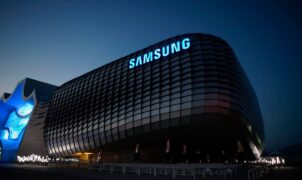TECH NEWS – Laptops and peripherals purchased under Russia’s “parallel import” scheme are not designed for Russian speakers, causing problems for workers.
Russia published a list of “parallel import” brands in early May in response to escalating Western sanctions and numerous tech companies’ departure following the Ukraine invasion. The scheme allows local companies to buy limited goods from outside Russia, provided they are legally sourced in the country from which they are purchased. But there are some problems, Kommersant reports…
Here’s a concrete example of what this means: retailers who want to continue selling Macs and iPhones can, under the parallel import regime, buy Apple products from sellers in countries where the company still operates. Businesses will not be able to purchase Russian-format devices directly from Apple, but they can approach third parties based in China, Serbia or elsewhere to replenish their stocks.
The problem is that these devices will be configured for Chinese and Serbian users, including their keyboards.
All this is seriously hampering workflow from Bryansk to Vladivostok and has even upset the government. Contracts concluded by government agencies with their employees require that everyone be given a workstation with a keyboard with the usual layout. If the bulk of the two million keyboards the country imported in the first half of 2022 does not have this contractually required layout, they will become unusable for government work. Experts predict that non-Russian keyboards will make up 10% of the country’s stock by the end of the year.
At least one segment of the Russian economy benefits from the keyboard chaos.
Demand for laser-engraving of keyboards has doubled in recent months to convert Turkish and Arabic-keyboard layouts to Russian Cyrillic. The Ministry of Industry and Trade actually offered this as a solution in response to Kommersant’s original report, suggesting that “the price of the final product will remain practically unchanged” due to the cost of the cheap engraving process. However, this would probably invalidate the guarantee.
With global sanctions hitting the economy, this is a crucial time for Russian technology, which has been forced to quickly break away from the vast array of Western tech companies it has relied on for decades. Another Kommersant report in June showed that 60% of laptops currently imported by the country have no operating system at all, while in recent weeks, game developers have been calling for the government to fund the creation of a ‘national game engine’ to replace Unreal and Unity.
As Russia’s invasion of Ukraine drags on, the situation will only likely worsen.
Source: Kommersant (1, 2), Reuters
















Leave a Reply